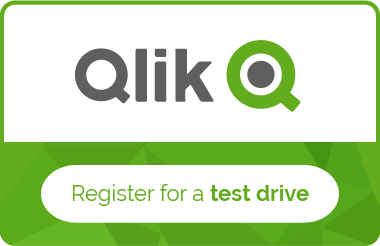Monetising Data To Deliver Strategic Worth To The Enterprise

We all know customer, financial and operational data is valuable, but what we do with it is a different story. With masses of data flowing in and out of organisations every day, in some cases, every minute, a well-executed data and advanced analytics strategy allows businesses to extract substantial value from these assets.
For guidance on what your enterprise can do to monetise data, it helps to look to a couple of the world's most successful corporations in recent years. According to Information Week, the titans of business have shown that data is the key to a competitive advantage in the 21st century.
"Where knowledge is power, data is wealth," said Bruce Daley, author of "Where Data Is Wealth: Profiting From Data Storage in a Digital Society." "The companies that are most progressive in thinking about data differently are the companies that are changing the economy, like Google and Uber. Most businesses lag way behind in terms of the idea that data could be their primary reason for being."
So what are Google and Uber doing that others haven't? It's quite simple - they've been disrupters and changed the rules within their industries and have used BI applications to tap into consumer insights, find out what people want at any given minute and deliver it.
Exactly how organisations go about monetising data assets however to deliver strategic worth, will be different for each, but here are a few suggestions.
There's a lot to learn from customers
Using business intelligence software like Qlik, enterprises can better map and understand customer experiences and behaviour. Companies can better tailor marketing messages and target customers based on their potential lifetime value rather than on more rudimentary measures, such as campaign response or even revenue. Delving deeper into behavioural measures like purchase patterns and trends, while profiling 'best customers' based on these can allow companies to use that profile to attract customer types that contribute to higher margins.
Stop revenue leaks
The value of data can also be found in cost savings. Busy hospitals and healthcare providers can easily lose track of the services they've provided. Each procedure has a description and a code, both of which may include errors. Using analytics, those organisations can identify patterns associated with the codes and the procedures, so that patient invoices can be flagged for potential errors or missing charges. Intelligent data use also helps those same organisations improve the ROI of collections. Specifically, they are able to identify the right person to contact, the channel that is most likely to elicit a response, and the time of contact that is most likely to yield a positive result. Our recent article around how to find loss in the retail industry is another example of monetising data by using smart analytics to reduce retail shrinkage.
Embrace a new revenue model
Data is also changing the relationship companies have with their customers. Tangible goods manufacturers are supplementing their products with flexible software options and services to create new revenue streams and offer customers more choices. At the same time these companies are providing higher levels of personalisation. Across industries, new economic models are being explored, such as replacing vehicle ownership with fleets of self-driving cars and supplementing traditional insurance with micro-insurance options.
Other examples of using data to forge new revenue streams include Alibaba, who offers targeted personal finance products to customers that are active on its digital commerce sites. Data brokers such as Dun & Bradstreet provide data on company identification, credit history, risk exposure, lead scoring, and other prepared context data. In the financial industry, banks and credit card companies provide payment information value-added services (PIVAS) to retailers and merchant partners. Social media companies use the data collected on their platform to sell targeted online advertising. These are just a few of the many ways data is being monetised today.
A large number of monetisation opportunities are created using actionable customer insights from big data, especially in the consumer packaged goods and retail sectors. Through its Retail Link trading partner portal, Walmart for example gives suppliers its entire sell-through data - almost in real time and by store. As the Internet of Things (IoT) finds its way into businesses of all kinds, more companies will be revisiting their business models to discover new revenue sources and to stay relevant.
Great companies use insight to optimise what they do and with a focused data strategy and the rise of machine learning, companies can diagnose root causes, predict behaviours and reshape entire industries.
Related Articles
No results found
Please refine your search criteria and search again




